Polymers Petrochemicals Sustainability Bioplastic 07-02-2019 - Arhive
With 50 days remaining, here are some of the deadlines and events that will be coming up
The UK and the EU27 appear no closer to reaching a deal before the 29 March deadline. Photograph: François Walschaerts/AFP/Getty Images
With 50 days remaining until Britain is scheduled to leave the EU on 29 March, the two sides have agreed to continue exploring possible tweaks to the Brexit deal that might get it over the line in the House of Commons, while still respecting the EU27’s guidelines.
So far, neither looks set to budge. Meanwhile, the clock is ticking for Westminster, Brussels and businesses. Here are some of the key dates and deadlines as Brexit finally gets real.

Collection rates are “the main issue” facing the recycled polyethylene terephthalate (R-PET) market, an executive at industry trade group Petcore said on Tuesday.
Christian Yves Crepet, executive director at Petcore, was speaking at the trade group’s annual meeting, which runs in Brussels on 6-7 February.
The need to increase collection rates of post-consumer polyethylene terephthalate (PET) bottles – the main feedstock for the R-PET industry – has been a theme throughout the conference so far.
Casper Van den Dungen, vice president of Plastics Recyclers Europe, is expecting bottle-to-bottle R-PET production capacity to grow from its current estimated 350,000 tonnes/year to 990,000 tonnes/year by 2030.
“The only issue to get there is collection,” he said.
The EU has set collection rate targets for the R-PET beverage industry at 77% by 2025 and 90% by 2029.
Van den Dungen argued that if five of the largest PET consuming countries without deposit schemes were to switch their collection systems, this would bring the necessary volume.
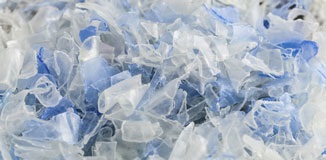
- Crude Oil Prices Trend

If we want to achieve the kind of environmental gains major brands have been talking about for plastic bottles — like Coca-Cola Co.’s plans for 50 percent recycled content in its plastic containers by 2030 — the United States will need a herculean effort to more than double its recycling rate for PET bottles.
And that could be a reality check for the public amid all the talk about how to make plastics more sustainable.
That analysis of needing to double PET bottle recycling is not mine. It comes from longtime plastics recycling expert David Cornell, who has been making the rounds with the message that the demand for so many more recycled bottles to feed Coke and others will threaten to overwhelm our recycling systems, and lead to much more pressure for national deposit laws.
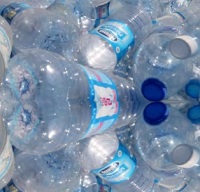
The market for pharmaceutical packaging is predicted to increase at a CAGR of 8.75% through to 2026, with PET packaging contributing $45.12bn of this.
In 2017, the global market for pharmaceutical packaging was calculated to be worth $70.16bn (€61.6bn) and is set to more than double by 2026, when it is projected to reach $149.25, according to a report by Research and Markets.
The market is expected to mature at a compound annual growth rate (CAGR) of 8.75%, with one of the key drivers being the growth of the industry in emerging economies.

Recovered plastic buyers and a relationship with major U.S. reclaimer KW Plastics have helped Waste Management through recent market troubles. The hauler has even made equipment upgrades specifically to meet that demand.
A publicly traded company, Waste Management is the largest residential garbage and recycling company in North America. At the company’s annual sustainability forum last week, top executives described the factors that have helped Waste Management weather the market downturn and how they’ve responded to the changing markets.
The company invested millions of dollars into recycling in 2018, and the year to come will bring the company’s “largest residential recycling investment” to date, company leaders said.

Chemical conversion process could transform polyolefin waste
A new chemical conversion process could transform the world’s polyolefin waste, a form of plastic, into useful products, such as clean fuels and other items. The conversion process incorporates selective extraction and hydrothermal liquefaction. Once the plastic is converted into naphtha, it can be used as a feedstock for other chemicals or further separated into specialty solvents or other products.
The United Nations estimates that more than 8 million tons of plastics flow into the oceans each year. A new chemical conversion process could transform the world’s polyolefin waste, a form of plastic, into useful products, such as clean fuels and other items.
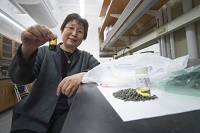
The shipments, which left ports in Texas in late December, are among a handful bound for China or points near it currently as a March negotiating deadline on a new trade deal draws near.
The amount of U.S. oil being shipped to China is well below what it was a year ago, when the trade war erupted.
There aren’t any ships currently leaving U.S. ports bound to China, where they would arrive after the March deadline for a U.S.-China trade agreement.

The pricing trajectory appears to be flat-to-upwards for the five highest volume commodity resins moving to first quarter’s end.
A combination of higher global crude oil prices, a firming up of prices of key feedstocks, higher export volumes in some cases, and a rebound in demand in some other cases, are key drivers in projections for flat to at least slightly higher prices ahead for PE, PP, PS, PVC, and PET.
Here is a look at how things were being viewed as we approach mid-February by purchasing consultants from Resin Technology, Inc. (RTi), Fort Worth, Texas; senior editors from Houston-based PetroChemWire (PCW); and CEO Michael Greenberg of the Plastics Exchange in Chicago.
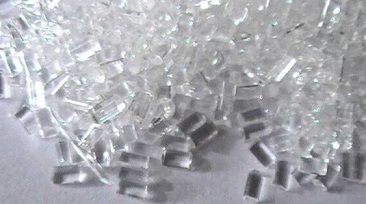
With unprecedented filtration fineness of 60 µm, Ettlinger’s ECO melt filters will in the future make it easier to treat recycled material for the film, packaging tape and fiber industry and help plastics recyclers remove challenging contaminants like paints, silicones, barrier materials, cross-linked fractions and gels from the melt.
In particular, the new filter screens will enable cost-efficient conversion of post-consumer PET bottle flake and fines, which generally occur in large amounts, into recycled material with excellent usage properties.
Recycled PET from post-consumer bottle flake is highly sought-after in the industry as a raw material for thermoforming packaging, fibers or packaging tapes. Against the background of increased environmental awareness, such products are also widely accepted – and in considerable demand – among consumers.
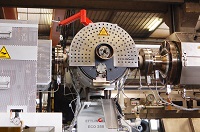
Brazil’s Braskem and Denmark’s Haldor Topsoe have reached mechanical completion on the first phase of a demonstration plant that will produce bio-based monoethylene glycol (MEG) from sugars, the companies said on Wednesday.
Located in Lyngby, Denmark, the first phase of the project can produce over 100 tonnes/year of glycolaldehyde, which is converted into bio-MEG in the next process step, and begin operation on 1 March.
Construction on the next phase, the downstream conversion to MEG, is underway, with mechanical completion expected before the end of 2019.
The monosacacccharide industrial cracker, known as MOSAIK, cracks sugars to an intermediate product that can be converted to MEG, methyl vinyl glycoate or glycolic acid.
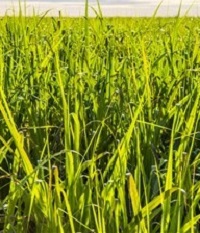
Waste management company Biffa has received planning approval from Durham County Council to build a new £15-million plastic recycling facility near the town of Seaham.
Biffa will be making use of a 130,000 square foot vacant warehouse at Foxcover Distribution Park, where the company intends to install a polymer processing plant capable of recycling more than one billion plastic bottles every year.
The proposed facility will be in operation 24/7 and will process three million bottles a day into new food and drink packaging, bringing around 70 new full-time jobs to the area. Construction is expected to commence in summer 2019, with the first commissioning trials scheduled for December.
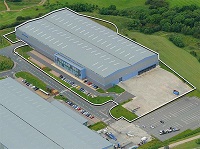
Unifi Asia Pacific Company (UAP) has entered into a commercial agreement with Kipas Mensucat Isletmeleri AS (KIPAS) for the supply of Repreve staple fibres to Turkey. UAP and KIPAS will leverage the supply infrastructure in Turkey to provide quality, service, speed-to-market and Repreve-based staple fibre offerings to fabric mills, brand and retail partners.
The agreement will provide customers in Turkey rapid access to Repreve spun yarns by utilising the advanced capabilities of KIPAS, said a press release by UAP. Repreve staple fibres will be available from KIPAS in a variety of specifications including raw white and dope dyed as well as a range of deniers and staple lengths, allowing for quick access to quality Repreve spun yarns in Turkey.
Repreve, the global leader in branded recycled fibre, is made from recycled materials, including plastic bottles, and is traceable and certified through Unifi’s proprietary U Trust verification program. U Trust is a comprehensive certification programme designed to provide Repreve customers with an increased level of transparency.

